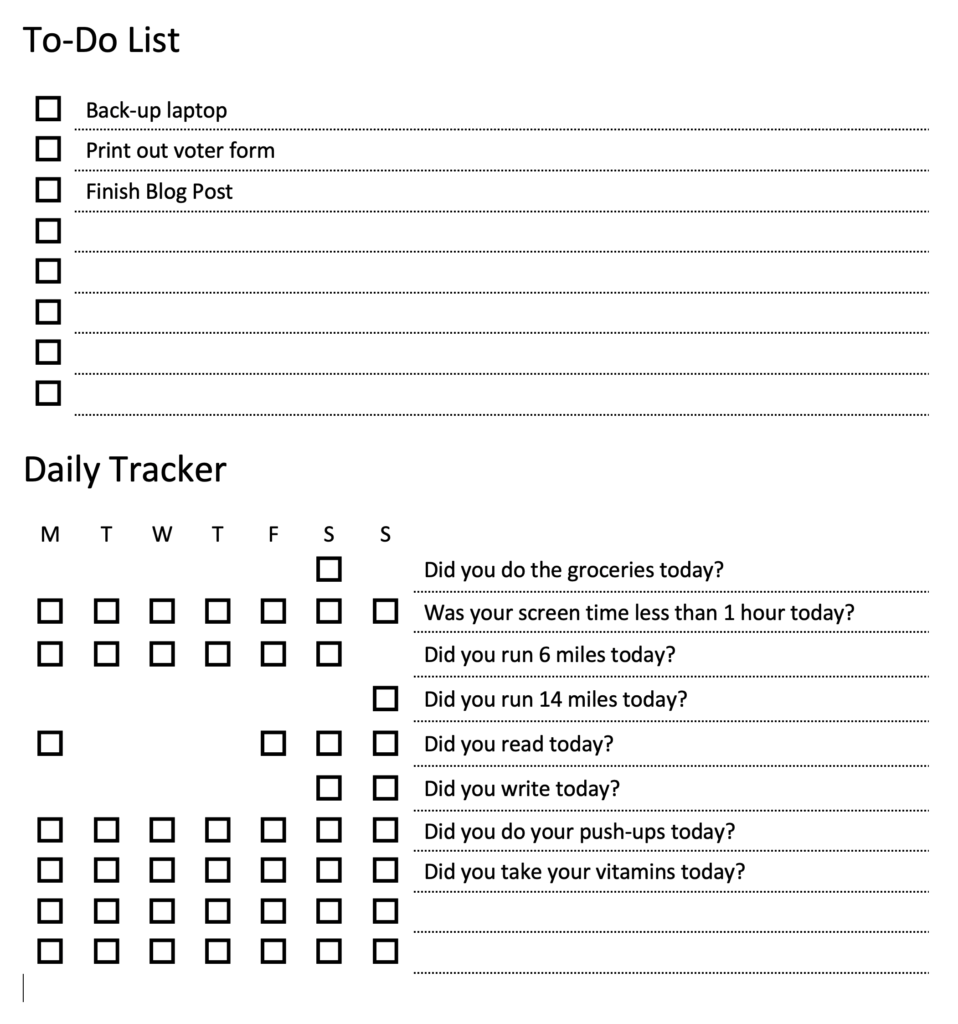How 'To-Do' Habit Change
Let’s face it I am lazy.
I am sitting outside a coffee shop, all concerned about sustainability, when I am drinking my latte out of a single use plastic cup. As I type, I am inconvenienced because my laptop screen is coated in a thin layer of dust. However, I am not irritated enough to wipe it off.
There are numerous other things that are on my mental to do list. From the old laptop I need to restore the factory settings, to donate to the local school’s program. To the voting registration form I need to print off and send through the mail.
In situations like these, there is a definition of inertia I like to think of:
“A property of matter by which it remains at rest or in motion in the same straight line unless acted upon by some external force”
Viewing inertia in this way, it is both a form of exertion and resistance, depending on whether an object is at rest or in motion. My laziness is the result of me not exerting a force to put in motion a positive action. On the other end of the spectrum, continually checking social media on my phone is the result of me not resisting that negative impulse or urge. As a result, I am horrified at the end of the week when I receive my screen time alert to see that I spend on average three hours a day staring at my phone.
I find it helpful to think of progress in this way in the form of exertion or resistance. It allows me to think of the smallest possible action to set in motion what I want to achieve.
So how do I start?
The first step is to get all those nagging thoughts out of my head and onto paper. In that way I can articulate the problem and reduce the mental strain of it nagging at me.
However, my typical to-do lists consist of positive actions I wish to take, i.e. they are exertions. I cannot think of a time when I wrote down something like ‘stop checking LinkedIn’. Also, what I write down are a series of unrelated one and done items.
Analyzing these flaws, it is evident that the actions I take do not promote habit change. However, when I do have a to-do list, I do tend to check off most of the items on there. So, there must be a way to leverage these micro-tasks to make lasting positive change?
How can I do this?
First, I think whether the habit is something I want to start or stop doing, then breaking it down into its simplest element.
For instance, I want to reduce the screen time. The common advice is to make it harder by removing the Apps from your phone. I never experienced any benefit from doing this. I ended up checking social media on my Safari App.
The personal accountability to reduce my screen time still resides in my head, it is not articulated anywhere. Therefore, I posed habit change in the form of a daily question on my to-do list to check off.
‘Was your screen time below 1 hour today?’
It also works for positive actions. For instance, with running it could be as simple as ‘Did you go for a run today?’ or if I am in a Marathon training block it could be more specific such as ‘Did you do your interval session today?’.
These daily questions I couple with the singular task-related items such as work-related objectives, or administrative items in my personal life.
In the end what I constructed is a hybrid of a to-do list, in conjunction with a daily tracker of repetitive questions to ask myself. My hope is that by asking these questions I can start to shift my habits from negative to positive ones.
This is just the start of this new approach to habit change, I will be sure to check in to let you know of the success.
Please note: Resources such as Atomic Habits or Check-List Manifesto were not consulted in the writing of this article. This is just my latest strategy to improve on past failures :).

